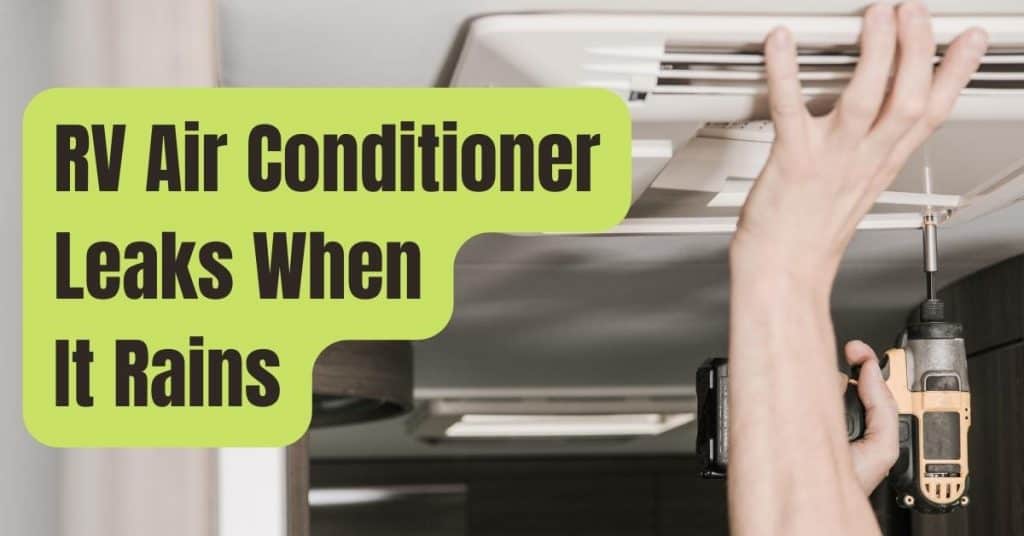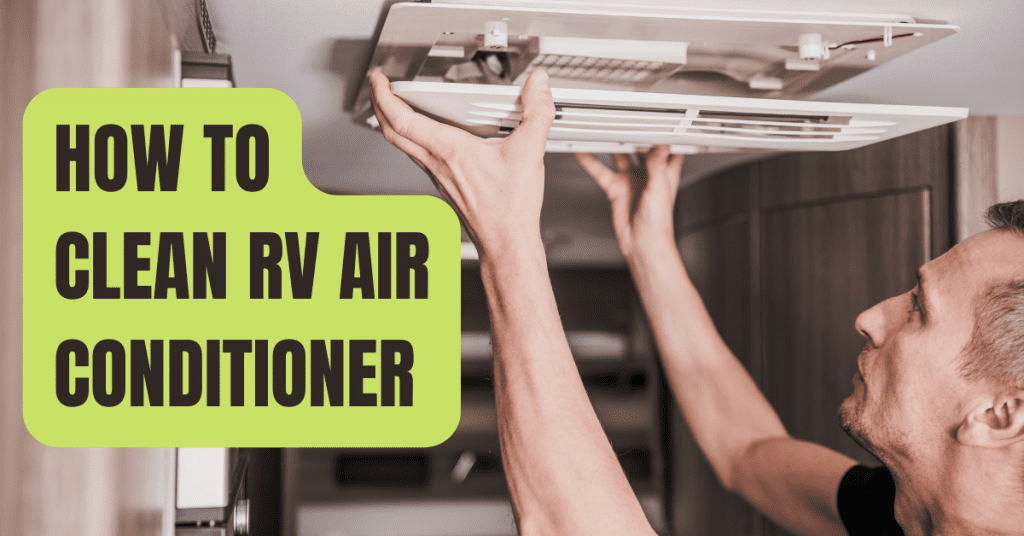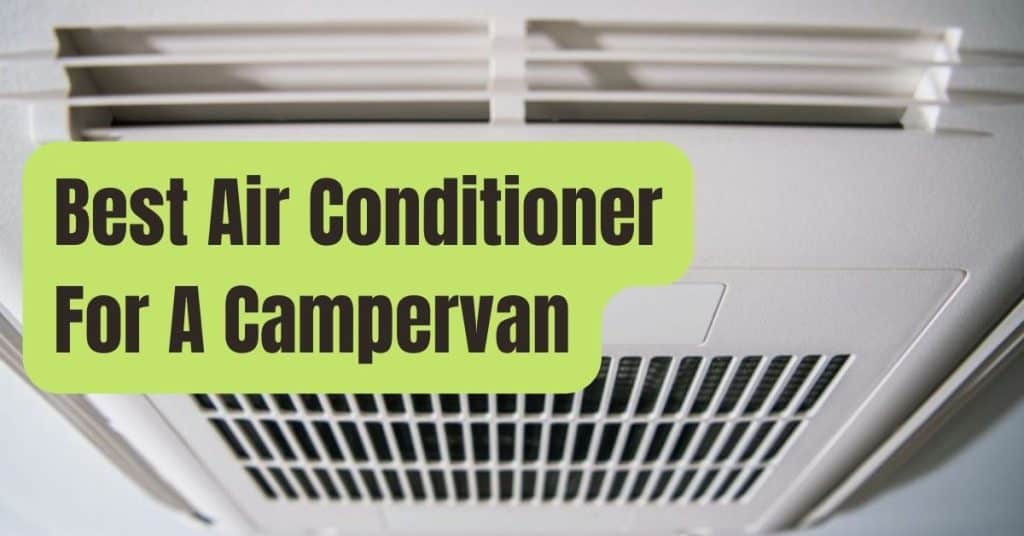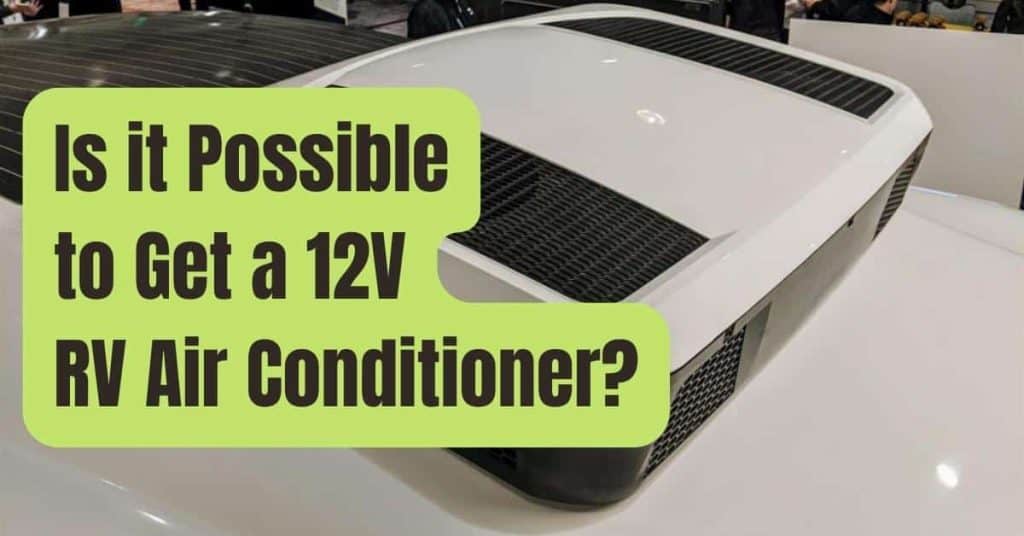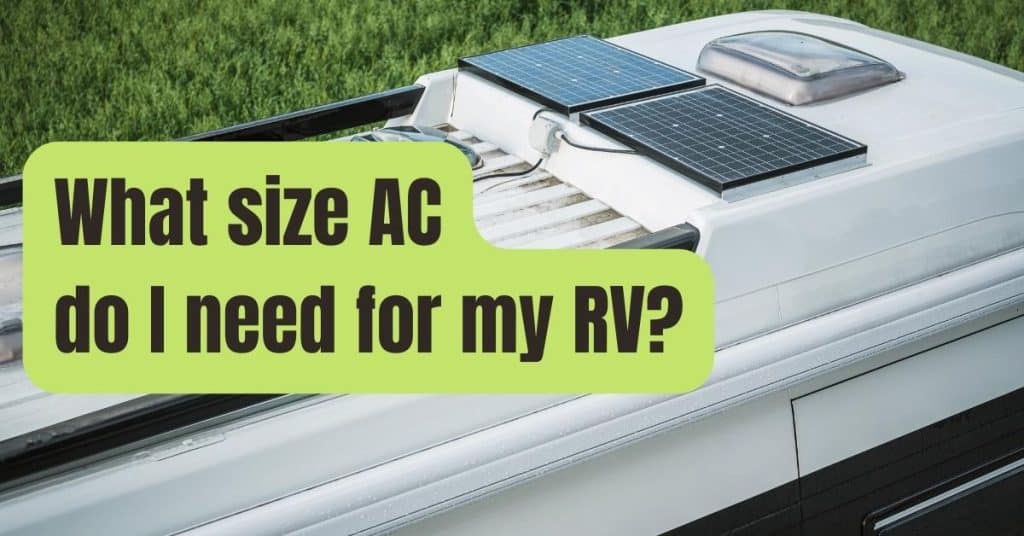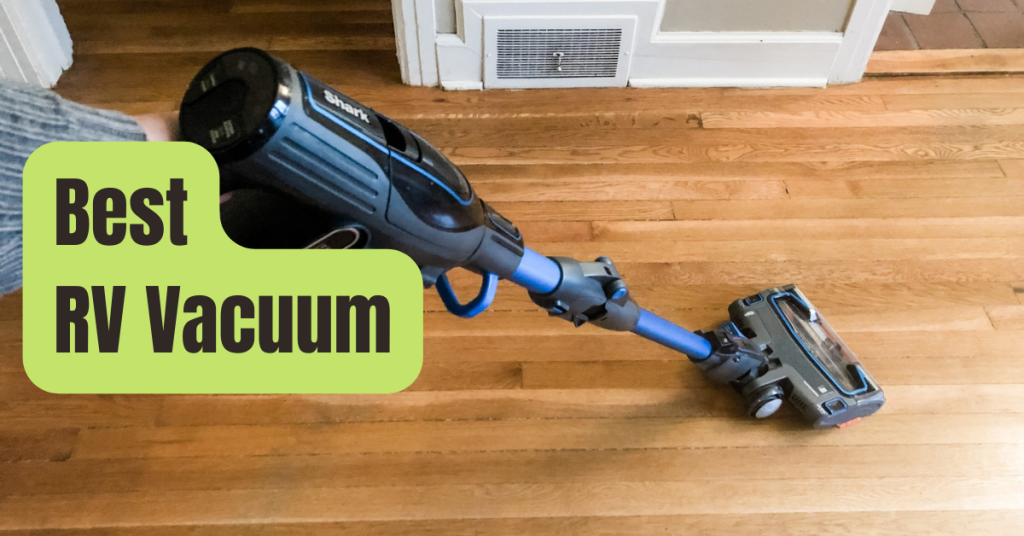Solar panels may be used to power an RV Air Conditioner with the appropriate setup. This is excellent news, since summers are now hotter than they have ever been.
The Benefits and Drawbacks of RV Solar Energy
If you’re looking at solar panels for your RV, you’re undoubtedly already acquainted with the concept of solar energy. Most people are aware of the advantages of solar energy. However, some people may be unaware of the disadvantages. The following is a list of both.

The following are some of the benefits of RV solar energy:
- It’s a source of renewable energy. Solar energy is a renewable source of energy. Solar energy is feasible and may be utilized wherever in the globe as long as the sun is there.
- Electricity costs are reduced. Solar energy meets all of your energy requirements, so you won’t have to pay for power.
- There are several uses. Solar energy has a wide range of applications. It may be used for a variety of electric purposes. It also has the ability to heat.
- Maintenance expenditures are low. Solar panels do not need a lot of maintenance. You’ll be OK if you wipe them off a couple of times a year.
RV solar energy has a few drawbacks:
- The price. The initial cost of purchasing solar panels is really expensive. In addition to the inverter, batteries, wiring, and installation, you’ll have to pay for the inverter, batteries, wiring, and installation.
- It is affected by the weather. Solar energy will not be very dependable if you come from an area like mine, where it is often gloomy and wet.
- Storage is costly. During the day, batteries may be charged so that the energy can be utilized at night. Solar energy may either be utilized immediately once or conserved.
- It takes up a lot of room. You’ll need a lot of solar panels to receive the most sunlight possible if you have a lot of electrical demands. Solar panels take up a lot of room.
The principles of solar electric power systems in RVs and typical dwellings are comparable.
Read more: Top 5 RV Air Conditioner Issues and How to Fix Them
How Do Solar Panels for RVs Run an Air Conditioner?
You can operate RV A/C using solar power if your system is large enough.
Yes, it is theoretically feasible to use a solar panel to power an RV Air Conditioner. However, a huge number of solar panels and electrical infrastructure modifications are necessary to provide adequate electricity.
Another option is to use a “Soft Start” gadget. The great majority of RV owners are unlikely to go to such lengths. Continue reading if you’re prepared to create a large enough system for RV solar panels to power an RV Air Conditioner.

First, let’s go through the fundamentals of RV solar power systems.
Designing a system to utilize solar panels as your RV’s power source takes a lot of time and effort. When you want to use solar panels to power RV air conditioners, things become a little more tricky. I’ll go into some of the technical aspects of how this works to assist you understand.
Solar panels as a source of RV electricity for an air conditioner is more complicated than you would assume. Before the electricity can operate the A/C, it must go through a series of processes. From start to finish, the steps are as follows:
- Panels made of solar energy Solar panels operate by enabling light particles to release electrons from atoms, allowing energy to flow.
- A battery bank for an RV This energy is channeled into the battery bank. Once within the battery bank, every ounce of energy is delivered.
- The DV side of the RV’s electrical panel is 12 volts. The batteries are connected directly to the RV’s DC power source (there is a DC and an AC power side).
- Inverter. An inverter is also powered directly by the battery. The battery provides 12 volt direct current to the inverter. This energy is converted into AC power via the inverter.
- Side panel for the air conditioner. The AC side of the RV is supplied with power after the inverter transmits the energy.
All of the features of a typical RV power system are feasible when the solar panels feed the electricity to the batteries. All power troubles may be attributed to the batteries. However, there are challenges when it comes to size.
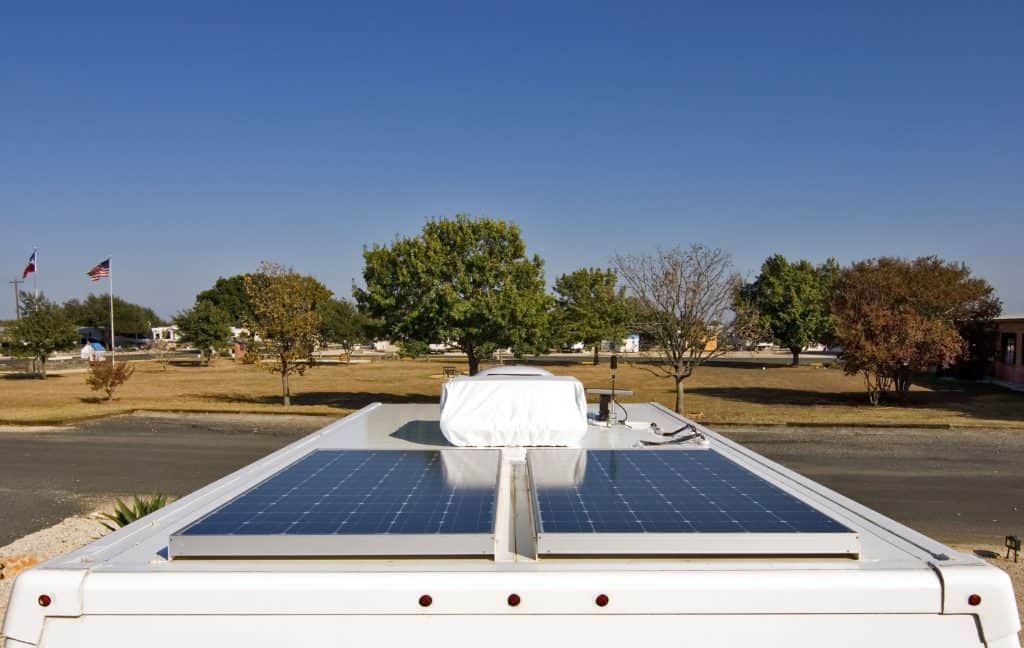
Is Your RV Solar Power System Capable of Running A/C?
The most critical consideration in how your RV solar power system will work with your RV is its size. There is no such thing as a one-size-fits-all solution. Calculate your RV’s solar power requirements in kilowatts (kW). Once you have that information, you can use the following methods to calculate the size of your RV solar power system:
- Take that amount and multiply it by 1,000. (there are 1,00 watts in 1 kW).
- Determine the wattage of the solar panels you’re thinking about buying.
- Subtract the first and second numbers.
The solar array, battery bank, and inverter are the three components that need special attention if you want your RV solar panels to power A/C.
1. You’ll Need the Correct Solar Array Size
Solar panels may be used to power your air conditioner. They must, however, be able to generate a large amount of energy. Some air conditioners, for example, need 2.5 kw. To power the air conditioning on a continual basis, your solar panel system would need to be at least 3kw.
If you want to run your air conditioner for five hours a day, you’ll need 750 Ah each day from the batteries.
Read more: Can you run RV Air Conditioner on 30 AMP?
Note that this estimate excludes any additional power-hungry equipment. These figures solely account for the energy required for air conditioning.
Solar panels must produce 107 amps for 7 hours per day to fulfill this demand. On a clear, bright day, this is possible. With the cloudy weather, more is required.
The least quantity of solar panels necessary to power a 13,500 BTU air conditioner is 1,500 watts.
2. Does Your RV Battery Bank Have Enough Capacity?
With a 150-amp air conditioner, 150 Ah would be required for additional items every hour the air conditioner is turned on without the sun shining.
When used in overcast conditions or at night, the battery bank must be much bigger.
It would, for example, need at least 700 Ah rather than at least 300 Ah. This prolongs the battery’s life over the night and on cloudy days.
Read more: Why Won’t My RV Air Conditioner Turn On? Steps to Take
3. Do you have the right size inverter?
In order for solar panels to power an RV Air Conditioner, a massive converter is required. A 13,500 BTU air conditioner, for example, need an inverter with a starting power of about 2,800-3,000 W. To avoid burning out, your inverter should be able to handle 3,500-4,000 W. Here are some more examples:
- A 7,000 BTU RV air conditioner requires 1,700 watts to start and 600 watts to operate.
- A 10,000 BTU RV air conditioner requires 2,000 watts to start up and 700 watts once operating.
- A 15,000 BTU RV air conditioner requires 3,500 watts to start and 1,500 watts to operate.
What Are the Advantages of Soft-Start Systems?
Consider an A/C/soft starter if you don’t want to invest in a larger-than-average RV solar power system. This will enable you to use a smaller inverter to power the air conditioner in your RV. According to Doug Curtis of SoftStart RV, this is how it works:
The SoftStartRV is an innovative device that gently smooths-out the startup power demand of the RV air conditioner’s compressor. The SoftStartRV reduces startup power demand up to an amazing 70% and it solves those A/C startup problems.
Top 7 Questions About A/C Soft Starters Answered, CamperReport.com
Is the Effort Worthwhile?
This is a question that only you can answer. Every RVer has a different response. It all depends on how big your RV is. Running air conditioning with RV solar power is probably not an option for you if your RV isn’t big enough to support a huge solar power system. That is, unless you wish to experiment with an A/C Soft Start system.
Conclusion
Yes, solar panels may be used to power an RV Air Conditioner. But it takes more than just the panels to do this. You can boondock with air conditioning everywhere you go if you are prepared to do the math, pay the money, and construct a system large enough!


